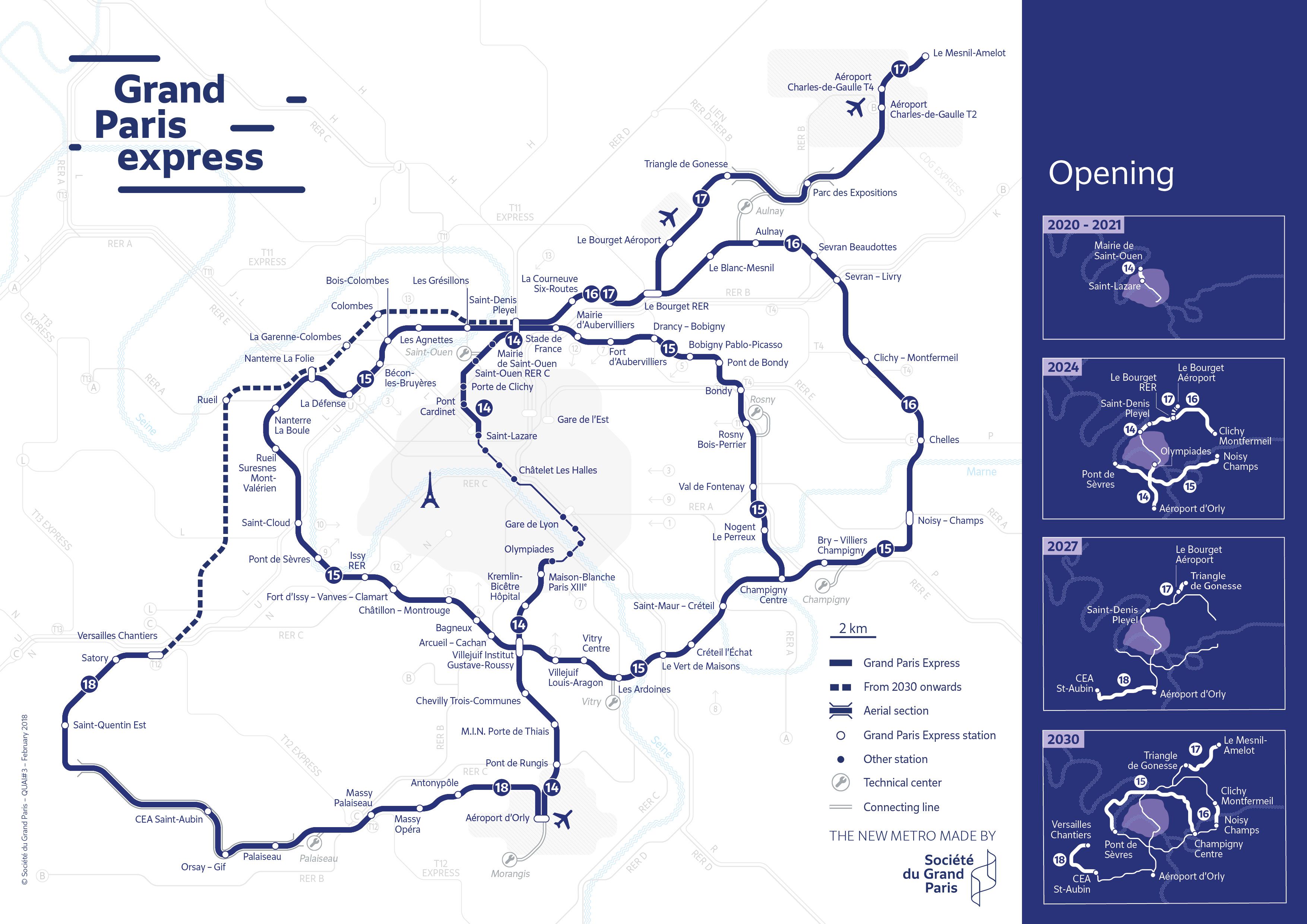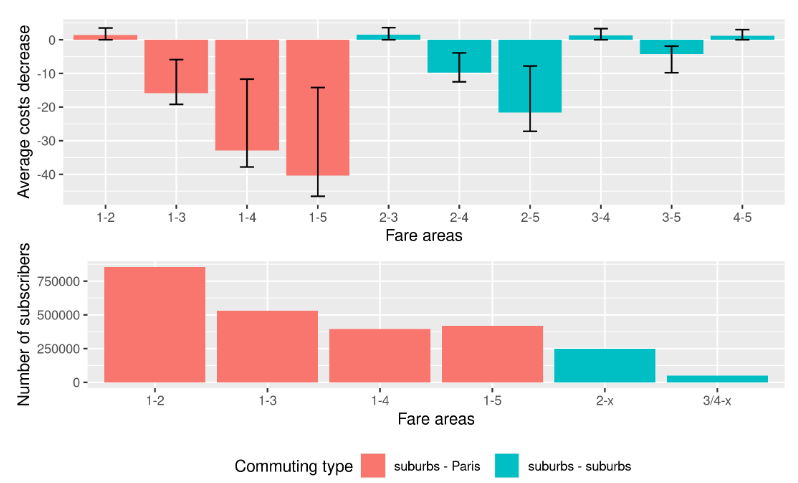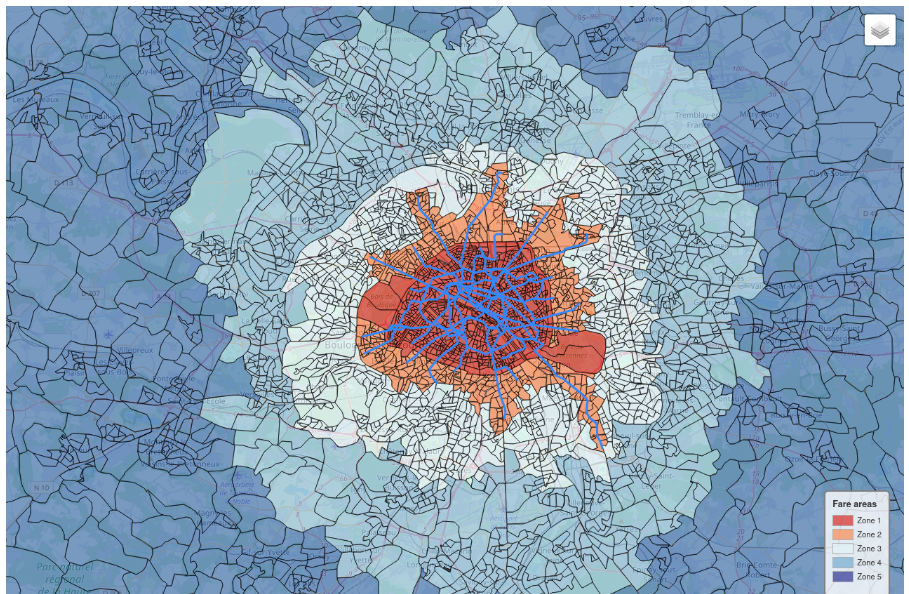LOCAL EMPLOYMENT DYNAMICS AND COMMUTING COSTS
Introduction
- The “Forfait Toutes Zones” (FTZ) entered into force on Sept. 2015 in the Paris area metropolitan
- The costs of using public transport decreased for workers living in the outskirts of Paris
- The costs of using public transport was (almost) unchanged in the city center
- A nice setting to analyze the effects of a change in commuting costs on other variables
Context: Grand Paris Express

Context: Grand Paris Express

Data
Data Sources
- Monthly # of workers registered to Pole Emploi at the municipality level: Pole Emploi
- Demographic and economic characteristics of municipalities and IRIS: INSEE
- House prices: DVF
- Fare area at the IRIS level: Vianavigo
Cost change by fare area

Fare area at the IRIS level

Econometrics
Main specification
$$y_{it} = \alpha_i + \gamma_t + \beta \times \delta_{i,t} + \eta_i t + \varepsilon_{i,t}$$
- $\alpha_i$: area fixed effect
- $\gamma_t$: time fixed effects
- $\delta_{i,t}$: indicator = 1 if treated and post-reform
- $\eta_i$: area-specific linear trend
- $\varepsilon_{i,t}$: error term
Results
For areas benefiting from the reform (zone 3):
- 0.25 percentage point decline in the unemployment rate
- 0.60 percentage point increase in the share of employed workers commuting using public transport
- 1.4% increase in the price of residential real estate